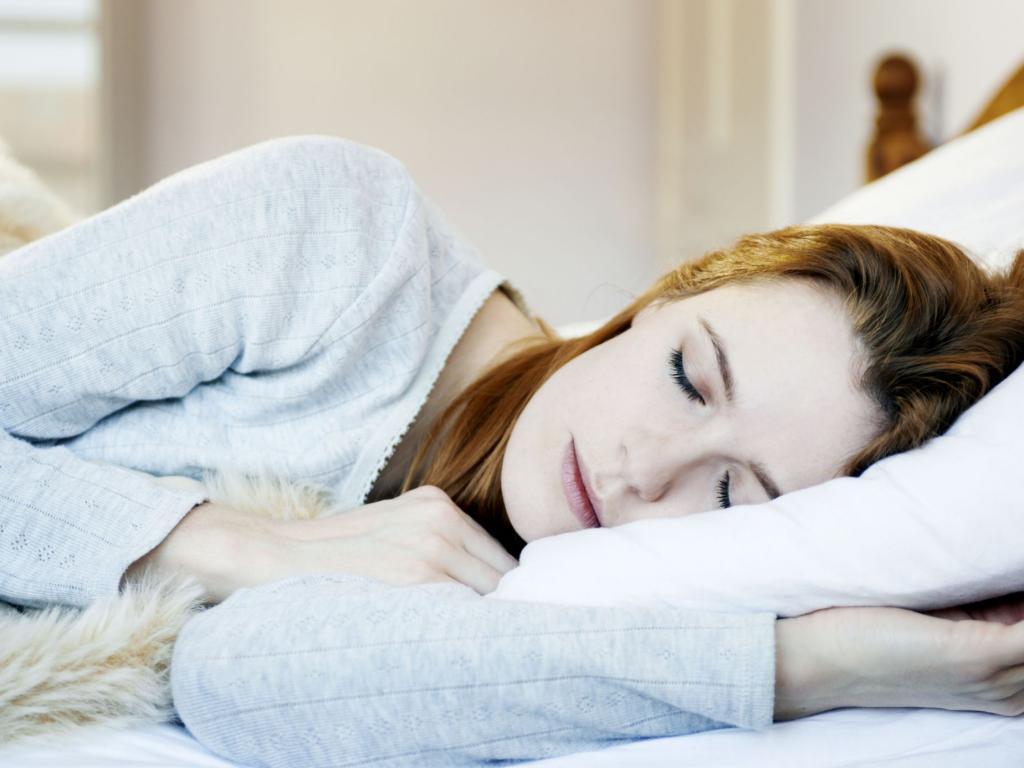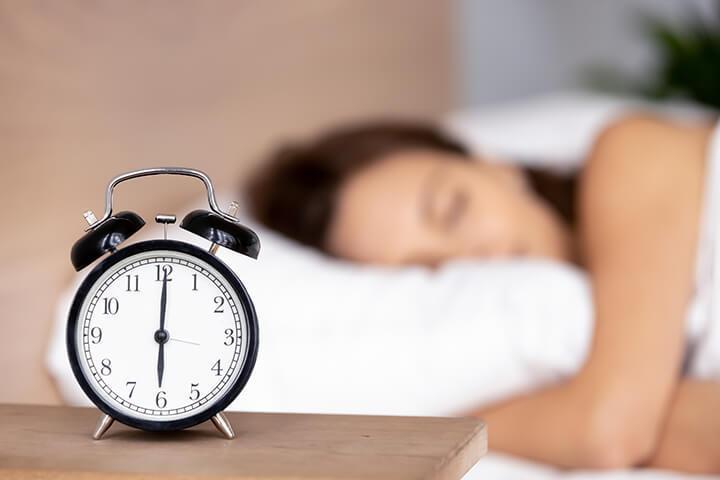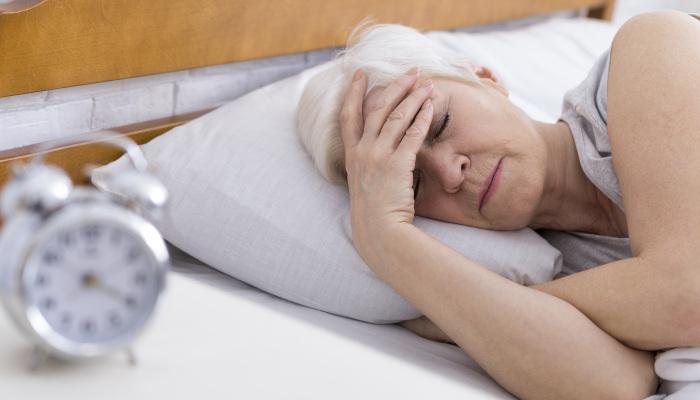Sleep deprivation’s negative effects are likely to have occurred at least a few times in your life already. A good night’s sleep is essential to our overall health and well-being. Exactly how sleep is restorative and why we need to sleep for so long each day remains a mystery. If we don’t get enough or if we get too much of anything, we know what can happen.
There are some individuals who believe that the body closes down during sleep and that here is where we reap the benefits, but that is not the case at all. While you sleep, your body and mind are hard at work repairing, regenerating, and strengthening.
As a result, it follows that sleep can have an impact on nearly every area of your health, including fertility.
How Does Lack of Sleep Affect Fertility?
In terms of fertility, there isn’t a lot of solid information about the direct effects of sleep on conceiving. However, studies have revealed numerous characteristics that suggest a possible connection between a woman’s ability to conceive and how much sleep she gets. The National Library of Medicine and the National Institutes of Health have a comprehensive article on the effects of sleep on fertility.
Hormone production is the most important aspect of fertility that sleep can affect. Insufficient sleep causes your body to create too little of some hormones while producing too much of others. Sleep-wake hormones like melatonin and cortisol are controlled by the same area of the brain that also controls the production of reproductive hormones. Stress hormones are produced when we don’t get enough sleep, which is bad for our overall health and can mess with our hormone levels, including estrogen and testosterone.

Another theory suggests that sleep-wake patterns may be linked to ovulation-inducing chemicals in women. It can also affect the maturation of sperm. Menstruation might become irregular, making it difficult to anticipate ovulation and increasing the time it takes to conceive, especially for women. When sperm quality is low, the chances of fertilization are reduced, and this might result in a low-quality embryo or other issues.
We already know that a lack of sleep can have a negative impact on your overall health and well-being, but it can also have an impact on fertility. Obesity, diabetes, and heart disease are all increased by chronic sleep deprivation. All of these circumstances make it more difficult to conceive.
Finally, a lack of sleep can have a negative impact on your emotional well-being and mood. Having a low libido can be caused by a hormonal imbalance, but being depressed doesn’t improve the matter. If you’re constantly grumpy and exhausted, you may have issues with your relationship or your sex life. Without IVF or IUI, lack of sexual intimacy can be a major impediment to conception.
Lack of Sleep Can Affect Fertility-Related Hormones
Over one-third of Americans do not get enough sleep, according to the Centers for Disease Control and Prevention. 1 The following information may surprise some women, so if you’re one of them, take a look. 2
- Reproductive hormones are released every day by the same area of the brain that regulates sleep-wake hormones (such as melatonin and cortisol).
- Sleep-wake cycles may be linked to the body’s ovulation and sperm maturation processes, according to research. LH — the hormone that causes ovulation as part of the regulation of your menstrual cycle — may be directly affected by chronic sleep deprivation in women. It may take longer for you to conceive as a result of the monthly irregularity.
Is there a link between not getting enough sleep and not being as fertile as you’d like to be, based on your hormones and your sleep patterns? According to a study released in 2015, nothing is known about the impact of sleep on fertility. 3
However, a study published in 2016 found that working night hours or rotating shifts may have an impact on fertility and miscarriage.
The Physical Toll Of Not Getting Those Zzzz’s
A lack of ZZZZ’s has a physical impact on the body in a variety of ways. When your reaction time is slowed, you’re more likely to make incorrect decisions, which can lead to accidents. The following are some other ways prolonged sleep deprivation affects you:
- Memory issues of both short and long-term duration.
- The ability to focus is impaired.
- Moodiness
- Blood pressure that is too high
- Risk of diabetes and heart disease is increased
- Weighing more
- Stability and cohesion
- Reduced arousal (sex drive)
How Much Sleep Should I Get?
The key to a good night’s sleep, as with most things, is moderation. Between too little and too much, you want to strike a balance between the two. Try to find the “just right” amount by channeling your inner Goldilocks. Nonetheless, how much sleep do you need in order to function optimally?
When addressing sleep disorders, we tend to focus on sleep loss or deprivation, but oversleeping can be a problem as well. Oversleeping can be a sign of a different health concern, just as it can be with sleep deprivation and insomnia.

What is the ideal amount of sleep? Aim for at least seven hours of sleep and no more than nine hours a night, according to the National Sleep Foundation. So, the ancient adage that you should get eight hours of sleep still holds true. The odds of getting pregnant are 15% lower for women who sleep less than seven hours than for those who get seven to eight. However, women undergoing IVF therapy who slept seven to eight hours a night were 25% more likely to conceive than those who slept nine or more hours a night.
Most healthy people can follow this recommendation, but it doesn’t take into account any medical disorders that can impair your sleep. Talk to your fertility doctor and the doctor who treats you for your sleep condition to find out how this may influence your fertility.
What Can I Do to Get More Sleep?
We’d tell everyone if there was a secret formula for getting a good night’s sleep. However, things aren’t as straightforward as they appear. Sleep deprivation affects one in three people in the United States. Prior to starting a family, you should consult with your doctor if you suffer from insomnia or another sleep condition. However, there are a few pointers that can assist you in getting a better night’s rest.
- If you can, aim to get to bed by 10 p.m., although this is obviously contingent on your schedule. Having the ability to be awake when the sun shines and to sleep when it’s dark can improve your mood. If this isn’t an option, you can use blackout curtains and sunrise/sunset alarms to create the same effect during non-peak hours.s.
- At some point during your pregnancy (and especially if you’re trying), you should begin cutting back on your coffee usage. Caffeine use should be stopped at least four to six hours before going to bed in order for your sleep habits to improve
- Regular sleep schedules are important: Even on the weekends, try to go to bed and rise at the same time each day. Even if you don’t want to give up your Sunday morning lie-in, if you establish a sleep schedule that allows you to get adequate rest each night, you won’t miss it.
- To wind down for the night, it’s common practice to read a book or watch a true-crime documentary. But it’s preferable to avoid anything that could keep you awake at night. Stick to something light if you plan on watching television before bed. Before you try to sleep, turn off the TV and any other electronic devices you might be using, as screens or light from electronics might disrupt your sleep. In addition, before you go off to sleep, practice some form of stress-relieving technique like deep breathing or meditation.
- Spending an hour in the sun can help you fall asleep and increase the quality of your sleep. Break it up if you have to: have lunch outside, go on walks, and play with dogs outside if you have to.
- Even “natural” supplements like melatonin can have a negative impact on your body’s processes, even if they’re labeled as such. Fertility can be decreased and the gonads may even shrink as a result of this medication. Ask your doctor for advice if you’re having trouble sleeping and he or she can recommend something.
Every effort will be made to assist you in your reproductive journey at Carolinas Fertility Institute. Additionally, they can provide advice on how to enhance your overall health and well-being so that you have a better chance of getting pregnant in the future. If you’re trying to conceive, you’ll want to make sure that you’re getting enough sleep so that your fertility treatments have the best chance of working.
Healthy Habits For Life
Getting a good night’s sleep can have a significant impact on your entire quality of life. It’s well-established that getting enough sleep is important for a healthy cycle. Healthful habits, such avoiding excessive drinking, smoking, and overeating as well as regular exercise and nutrition, can not only increase your chances of getting pregnant but will also lay the groundwork for a healthy life for you and your family.
What Else Connects Sleep and Fertility?
It’s not just your hormones that might be affected by a lack of sleep. Indirect effects on fertility have been found in studies, including the following:
Making you irritated and prone to mood swings. As a result, you may have lower chances of getting pregnant and your relationship with your husband or sexual partner may suffer as a result.
Increasing the risk of diseases and ailments that can impact fertility. Cardiovascular (blood vessel) diseases and obesity fall into this category.
Many people are familiar with at least a few methods for improving their sleep quality and getting more of it. Then give them a go! Be sure to check in with the doctor if you’re still having trouble sleeping or getting pregnant, since an undiagnosed health issue could be the root of your issues.
When it comes to our biological clocks, it’s crucial to obtain enough sleep and sunlight.
Here are a few tips.
Keep in mind that your specific sleep requirements may vary from person to person and even from time of year to time of year.

Even if you have to break it up into a 10-minute stroll in the morning, lunch on the patio, and a fast Frisbee toss with your dog in the late afternoon, aim for an hour or more of sunlight each day. 6
If you can avoid it, avoid working unusual hours: Avoid shift employment if at all feasible, as it might negatively impact fertility.
Consistency is key when it comes to sleep and waking times. This includes weekends.
Avoid anything that could impede your mind from relaxing and allowing you to drift off to sleep, such as paying bills, reading upsetting novels or viewing disturbing movies before bed. As an alternative, develop a regular routine of spiritual thought and partner massage as a way to wind down at the end of each day.
Reduce the brightness of your room’s lights: If you have difficulties winding down at night, try utilizing low-wattage bulbs and dimmers.
Sleep and stimulants should be separated by a buffer: During your pregnancy, limit your consumption of caffeine and alcohol to no more than five hours before going to bed.
Vote for this post!

![Top Rated CPAP Machine Buyer’s Guide [current_date format=’m/Y’]](https://bestpillowsleepers.com/wp-content/uploads/2023/03/best-cpap-machine-img_6405d72310053-400x300.jpg)
![The 11 Best Cooling Weighted Blankets [current_date format=’m/Y’]](https://bestpillowsleepers.com/wp-content/uploads/2023/01/best-cooling-weighted-blankets-img_63d4ff15c615d-400x300.jpg)
![Ultimate Guide to Choosing a Best Cooling Mattress Pads [current_date format=’m/Y’]](https://bestpillowsleepers.com/wp-content/uploads/2023/01/best-cooling-mattress-pads-img_63c403115126b-400x300.jpg)
![Ultimate Guide to Choosing a Best Cooling Mattress [current_date format=’m/Y’]](https://bestpillowsleepers.com/wp-content/uploads/2023/01/ultimate-guide-to-choosing-a-best-cooling-mattress-img_63bcdba870d77-400x300.jpg)
![Ultimate Guide to Choosing a Best Cooling Comforters [current_date format=’m/Y’]](https://bestpillowsleepers.com/wp-content/uploads/2023/01/ultimate-guide-to-choosing-a-best-cooling-comforters-img_63bba2f5cd3ce-400x300.jpg)